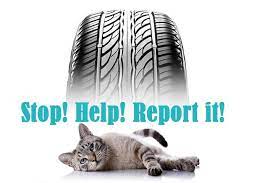animal control lahore, Best Pet clinic in Johar town, Pet care, pet clinic
How road accidents harm so many animals – and how you can help
Road accidents are one of the most common occurrences that take place in developed cities with large amounts of traffic and vehicles.
While the media takes into great account the road accidents that kill many hundreds of citizens each year, they often ignore the consequences these have on animal populations, such as stray cats, dogs and even animals used for transport itself, like donkeys and buffalos.
According to Psychology Today, in the US alone, a whopping 1 million animals die each day on roads.
But why do so many road accidents end up harming poor animals?
The ProPakistani states that according to a report, over 10 million cars are now in use in Pakistan.
Because of this increased urbanization and technological advancement, animal biodiversity not only deals with vehicle noise pollution and food insecurity, but their territories and habitats have also been greatly reduced due to road construction and deforestation.
This is why many of them end up wandering onto roads and highways.
Today’s Paper mentions that the free movement of animals on the Islamabad Motorway happens as a result of people cutting off fences. Consequently, wild animals like cows and pigs from nearby villages roam or appear freely at different points on the motorway.
Truck drivers also transport animals to animal mandis and sometimes these animals end up falling on roads. Other drivers may not be able to control their high speeds if an animal is to appear suddenly.
Moreover, animal rights laws are scarcely implemented in Pakistan. One of the only existing law surrounding this topic is the Prevention of Cruelty to Animals Act (1890) which may shortly imprison or fine any culprit guilty of killing or abusing an animal.
Looking at some statistics
According to a study (Tariq., et al 2019) on Patterns of Wildlife Road Mortality in the Pothwar Plateau in Pakistan, 46.6% road kills occurred in the Rawalpindi district, followed by 36.6% in Chakwal and 8.4% in Jhelum and Attock.
Physical characteristics are significant when measuring animal accidents – whether the road is curved, hilly, intersecting as well as the amount of visibility and noise that drivers deal with.
For example, majority of the accidents in Pothwar occurred on paved roads, with very little happening on unpaved ones.
The study further focuses on the seasonal factor – most road kills occur during the breeding seasons and dispersal periods of animals. For Pothwar, 33% road kills happened during the spring compared to 19.8% in the winter and summers combined.
To top this off, ignorance towards road safety and regulation in cities only increases the number of animals harmed in road accidents.
A journal on Road Traffic Accident Analysis (Syyed and Afaq, 2013) found that 25% road accidents are caused by careless driving, 23% by dozing off while driving and 6% by pedestrian crossing.
How can authorities prevent road kills?
An issue like this requires immediate attention by law enforcements, animal welfare institutions and animal owners themselves.
Some affective solutions include;
- Approaching road and city design in a way that animals and citizens are less harmed.
- Installing fencing in road kill hotspots, where there is more wildlife present. This can help increase safety for drivers too.
- Enforcing stricter animal welfare laws.
- Introducing awareness campaigns for truck drivers, and even setting certain time limits in the week for transporting animals (especially during occasions like Eid-ul-Azha).
- Addressing wider animal rights issues, like animal fights for entertainment, and the lack of animal healthcare funding.
How can normal citizens help?
While much of the power lies with authorities, citizens like us can also bring about collective change;
- Report animal accidents – hurt animals on roads can be helped by immediately notifying local animal rescues.
Some animal recues in Pakistan that you can contact (through Facebook and call) include:
- ACF Animal Rescue
- Pakistan Animal Welfare Society (PAWS)
- Animal Rescue & Transportation Service (ARTS)
- Todd’s Welfare Society (TWS)
- Edhi Animal Hostel
- Be a responsible driver – be alert while driving at night, or in road kill hotspots like motorways, or areas where there are many animals present like the countryside. Try honking and flashing headlights at animals multiple times.
- Carry an animal rescue kit in your car – this includes cat/ dog food, ropes, a small cage, blankets, bandages and water etc.
- Try efficient car add-ons – this means having brighter headlights on for nighttime and more alerting car horns. Some people even use ‘deer alarms’ which are attached to car bumpers and whistle at frequencies specifically wild animals can hear.
- Spreading awareness – all of us can easily make our drivers, children etc. aware of this situation by simply talking about it more!
- Know your vets and animal hospitals – even if you don’t own a pet, it is still useful to be familiar with these places in your area when the need for a rescue arrives.
Visit Pets World Clinic for animal services, or let us know in the comments below.

